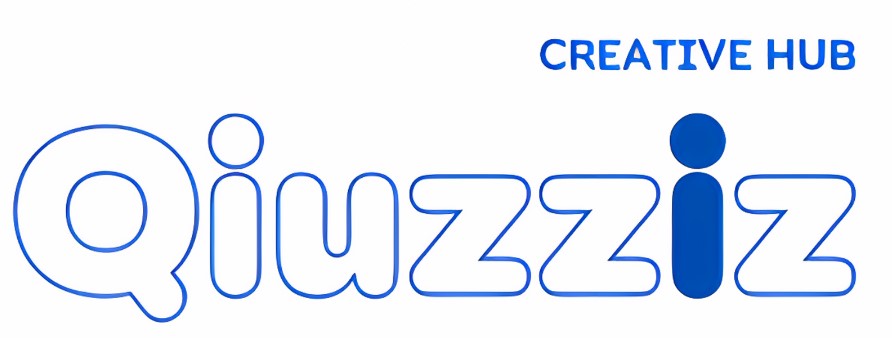Understanding Mortgage Options with Frank Mortgage Ontario

Types of Mortgages Available
Fixed-Rate Mortgages
A fixed-rate mortgage keeps the same interest rate for the entire loan term. This means your monthly payments will stay the same, making it easier to budget. Fixed-rate mortgages are great for people who plan to stay in their homes for a long time.
Adjustable-Rate Mortgages
An adjustable-rate mortgage (ARM) has an interest rate that can change over time. Usually, the rate is lower at the start but can go up or down later. ARMs might be a good choice if you expect your income to grow or if you plan to move before the rate changes.
Interest-Only Mortgages
With an interest-only mortgage, you only pay the interest for a set period, usually 5-10 years. After that, you start paying both interest and principal. This can make your initial payments lower, but they will go up later. Interest-only mortgages can be risky if you’re not prepared for the higher payments down the road.
Eligibility Criteria for Mortgages
Credit Score Requirements
Your credit score plays a big role in getting a mortgage. Lenders usually look for a score of 620 or higher. A higher score can help you get better interest rates.
Income Verification
Lenders need to know you can pay back the loan. They will check your income through pay stubs, tax returns, and bank statements. Make sure you have these documents ready.
Down Payment Necessities
A down payment is the money you pay upfront when buying a home. Most lenders ask for at least 5% of the home’s price. A bigger down payment can lower your monthly payments.
Meeting these criteria can make the mortgage process smoother and increase your chances of approval.
Steps to Apply for a Mortgage
Pre-Approval Process
The first step in applying for a mortgage is getting pre-approved. This helps you understand how much you can borrow and shows sellers that you are a serious buyer. During this process, a lender will check your credit score and review your financial history.
Document Submission
Once pre-approved, you will need to submit various documents. These typically include proof of income, tax returns, and bank statements. Make sure to have all your paperwork ready to avoid delays.
Final Approval
After submitting your documents, the lender will review everything to give final approval. They will verify your information and may ask for additional details. Once approved, you can move forward with closing on your new home.
Getting a mortgage can seem complicated, but breaking it down into steps makes it easier to manage.
Benefits of Choosing Frank Mortgage Ontario
Competitive Interest Rates
Frank Mortgage Ontario offers some of the best mortgage rate Ontario. This means you can save money over the life of your loan. Lower interest rates can make a big difference in your monthly payments, helping you manage your budget better.
Personalized Customer Service
At Frank Mortgage Ontario, you are not just a number. They provide personalized customer service to meet your unique needs. Whether you have questions about the application process or need help choosing the right mortgage, their team is there to assist you every step of the way.
Flexible Repayment Options
Frank Mortgage Ontario understands that everyone’s financial situation is different. They offer flexible repayment options to fit your budget and lifestyle. You can choose from various payment plans that make it easier to manage your finances.
Choosing Frank Mortgage Ontario means getting a mortgage that works for you, not against you. Their commitment to customer satisfaction and flexible options make them a top choice for homebuyers.
Common Mortgage Mistakes to Avoid
Overlooking Hidden Fees
When getting a mortgage, it’s easy to miss some of the hidden fees. These can include application fees, appraisal costs, and closing costs. Always ask your lender for a detailed list of all potential fees so you can budget accordingly.
Ignoring Prepayment Penalties
Some mortgages come with penalties if you pay off the loan early. This can be a big surprise if you’re not aware of it. Make sure to read the fine print and ask your lender about any prepayment penalties.
Choosing the Wrong Mortgage Type
Picking the wrong type of mortgage can cost you a lot in the long run. Whether it’s a fixed-rate, adjustable-rate, or interest-only mortgage, each has its pros and cons. Take the time to understand which one fits your financial situation best.
Avoiding these common mistakes can save you a lot of money and stress in the long run. Always do your homework and ask questions if you’re unsure about any part of the mortgage process.
Understanding Mortgage Insurance
Private Mortgage Insurance (PMI)
Private Mortgage Insurance, or PMI, is a type of insurance that protects the lender if you stop making payments on your loan. Borrowers usually need PMI if their down payment is less than 20% of the home’s value. This insurance can be canceled once you have enough equity in your home.
Mortgage Life Insurance
Mortgage Life Insurance pays off your mortgage if you pass away. This ensures that your family won’t have to worry about making mortgage payments during a difficult time. It’s different from regular life insurance because it specifically covers your mortgage debt.
Title Insurance
Title Insurance protects you and the lender from any legal issues that might come up with the property’s title. This can include problems like unpaid taxes or previous owners’ debts. There are two types of title insurance: lender’s title insurance and owner’s title insurance.
It’s important to understand the different types of mortgage insurance to make the best choice for your situation.
Refinancing Your Mortgage
When to Consider Refinancing
Refinancing your mortgage can be a smart move under the right conditions. If interest rates have dropped since you first got your mortgage, you might save money by refinancing. Other good times to consider refinancing include when your credit score has improved, or if you need to change the terms of your loan.
Steps to Refinance
- Evaluate Your Current Mortgage: Look at your current interest rate, loan balance, and remaining term.
- Check Your Credit Score: A higher credit score can help you get a better rate.
- Shop Around for Lenders: Compare offers from different lenders to find the best deal.
- Submit Your Application: Provide the necessary documents, such as income verification and credit history.
- Close on the New Loan: Review the terms and sign the new mortgage agreement.
Potential Savings
Refinancing can lead to significant savings over the life of your loan. For example, if you reduce your interest rate by just 1%, you could save thousands of dollars. Here’s a simple table to show potential savings:
| Current Rate | New Rate | Monthly Savings | Annual Savings | Total Savings Over 30 Years |
| 4.5% | 3.5% | $150 | $1,800 | $54,000 |
| 5.0% | 4.0% | $200 | $2,400 | $72,000 |
Refinancing your mortgage can be a great way to save money, but it’s important to consider all the costs involved, such as closing fees and other charges.
Frequently Asked Questions
What is a fixed-rate mortgage?
A fixed-rate mortgage has an interest rate that stays the same for the whole loan period. Your monthly payments won’t change.
How does an adjustable-rate mortgage work?
An adjustable-rate mortgage has an interest rate that can change over time. It might start low but can go up or down later.
What do I need to get pre-approved for a mortgage?
To get pre-approved, you usually need a good credit score, proof of income, and some money saved for a down payment.
Why should I choose Frank Mortgage Ontario?
Frank Mortgage Ontario offers low interest rates, great customer service, and flexible repayment plans.
What is Private Mortgage Insurance (PMI)?
PMI is insurance you might have to pay if your down payment is less than 20%. It protects the lender if you can’t pay your mortgage.
When should I think about refinancing my mortgage?
You might consider refinancing if interest rates go down, or if you want to lower your monthly payments or pay off your loan faster.









